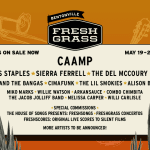How could a little kid understand those lyrics? I didn’t. I just loved singing this song along with my father more than any other one when we were driving somewhere in the car.
It’s knowin’ that your door is always open
And your path is free to walk
That makes me tend to leave my sleepin’ bag
Rolled up and stashed behind your couch
And it’s knowin’ I’m not shackled
By forgotten words and bonds
And the ink stains that have dried upon some line
That keeps you in the back roads
By the rivers of my memory
That keeps you ever gentle on my mind.
That “the ink stains that have dried upon some line” seemed magical to me, though I was never sure why. A constant reader, I already liked writing, though I was generally consigned to pencils at that point. That dried ink made permanent words was, I think, the magical part — that, and the fact that written words, even one’s signature, could so casually be referred to as “ink stains.”
The rhythm of the song was better, even, than the word patterns and unfolding story. It was water to me. That beginning cascade of notes, like a downhill stream, and then the guitar making waterfalls and currents, soft and loud, ebb and flow. Glen Campbell’s voice was gentle, like the title of the song, but his playing was full of crystal control and rolling soul. He didn’t bash his guitar or showboat; he just knew everything about it and how to make it sound out, and, once I first saw him on television, I had a sense of why: no posturing or grandstanding, just calm competence and even kindness. This man was loving making music.
The Glen Show, as we called it, was such a highlight of childhood. I wanted to go live in Galveston, where the sea winds blew and sea waves crashed and birds flew in the sun. That the singer, cleaning his gun far away in another country, dreaming of a girl’s dark eyes and the beaches of his Texas hometown, had something to do with a war my parents despised was something Papa had to explain to me. It is perhaps Jimmy Webb’s simplest, and surely his greatest, song — in the hands and voice of Campbell.
Galveston, oh, Galveston,
I still hear your sea winds blowing;
I still see her dark eyes glowing.
She was twenty-one, when I left Galveston.
The kicky fiddle start of “Bowling Green” made it another of my childhood favorites. Kentucky sounded like the coolest place to fall in love. And, last, but not least, Phoenix was another American place on Glen Campbell’s — and Jimmy Webb’s — song map that they made all our own.
The Daniel family did not mind Campbell’s foray into pop music and ironic commentary in 1975, as “Rhinestone Cowboy” topped both country and popular charts. That rhyme of “compromisin'” and “horizon” could only every have been sung successfully by Glen, and that triumphant rise of his voice on the “I’m gonna be where the lights are shinin’ on me,” with the three-beat and then the refrain, still make you think that subway token and dollar in the shoe won’t last. Midnight Cowboy made you know that they will, and the terrible energy driving that movie also powers Campbell’s best-known popular song (hell, he even looked like Voight in the start of the video).
I’ve been walkin’ these streets so long
Singin’ the same old song
I know every crack in these dirty sidewalks of Broadway
Where hustle’s the name of the game
And nice guys get washed away like the snow and the rain
There’s been a load of compromisin’
On the road to my horizon
But I’m gonna be where the lights are shinin’ on me….
We loved even more his utter ownership, in 1977, of Gioacchino Rossini’s William Tell Overture. Classical music by way of Tonto and the Lone Ranger: what could be a happier introduction to opera for American television viewers nostalgic for what Hollywood shaped as the “wild, wild West”?
More than once, Campbell came to the Richmond Coliseum, and somehow my father and I never made it there to hear him together. But I heard Campbell on the road many times. The last time was in Albany, New York, at the Egg in 2012. Papa couldn’t come with me; he was in the long decline that ended in his death the following year. Campbell’s illness and his battle against Alzheimer’s disease had been announced, and were incorporate in the name of his “Farewell Tour.” My husband, who appreciated some of Campbell’s music but was not a fan, knew what it meant to me and made sure our seats were extremely good. He also brought a bandana and a pocketful of Kleenex.
On stage, Campbell was exuberant. Surrounded by family and friends to both sides, and loving fans before, he stood with his cleft chin up and out, and an almost constant, radiant smile above it. He performed beautifully and professionally, looking natty in a brilliant blue jacket. Until the absolute perfection that has always been “Wichita Lineman,” I managed not to sob aloud.
I am a lineman for the county
And I drive the main road
Searchin’ in the sun for another overload
I hear you singin’ in the wire,
I can hear you through the whine
And the Wichita lineman is still on the line.
Why does the very brief song about a guy who takes care of what are today woefully outdated telephone lines pack such a punch it leaves you completely breathless, at once transported and destroyed? That “small vacation” is so plaintive; he’s working harder than even he thinks. And, as the miles and miles build up, it’s your voice he hears through the whine of static and trouble, singing in the wire. The length, clinical delivery, and tongue-twisteriness of “And if it snows that stretch down south won’t ever stand the strain” crashes so completely and suddenly into the unexpectedly personal reiteration, delivered as tautology: “And I need you more than want you / And I want you for all time.” Shakespeare never said it better than Webb. “Forever” would sound cheap or silly; “for all time” is eternal. What could you say but yes? What could you do but cry?
Thank you for your music and manner, Mr. Campbell. Thank you for saying goodbye to us. How I hate to say goodbye to you. We should all think about this song today, and hear your rippling, rolling storm of a guitar, and let these words sound in an America too full of darkness and cruelty.
You got to try a little kindness
Yes show a little kindness
Just shine your light for everyone to see
And if you try a little kindness
Then you’ll overlook the blindness
Of narrow-minded people on the narrow-minded streets….




